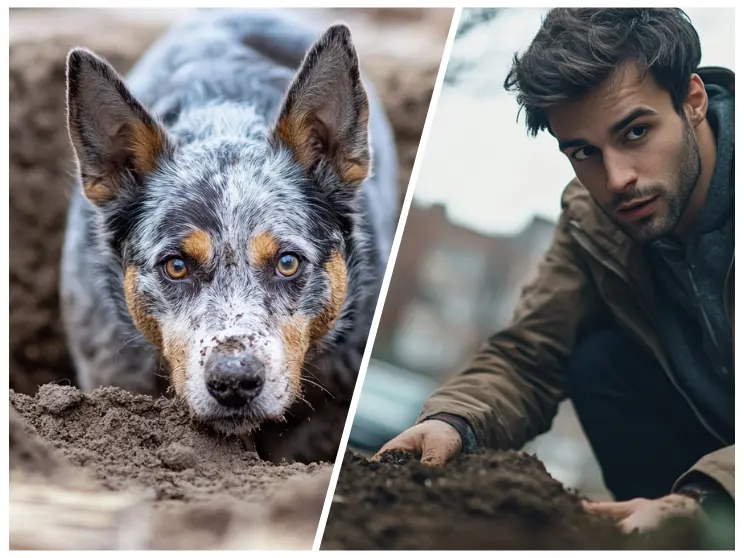The dog’s paws tore at the earth with a rhythm that never faltered. Its body trembled from exhaustion, ribs showing through its dirt-matted coat, yet it refused to stop. Hour after hour, day after day, the animal returned to the same spot, driven by something stronger than hunger or rest.
Passersby shook their heads, whispering about the stray that seemed bent on digging its own grave. The ground was hard, packed with stones and roots, but still the dog clawed deeper, ignoring the pain etched into its cracked pads. Each scrape of nail against soil seemed to echo with purpose, though no one dared guess what that purpose was.
What could keep a creature so malnourished, so weary, bound to the same patch of earth with unyielding obsession? Some wondered if it hunted, others feared it might uncover something better left buried. Whatever lay beneath, the dog would not stop until it was unearthed.
Ethan Ward was twenty-three, a transfer student still adjusting to the rhythms of a town tucked against the hillside. He’d come here for education, chasing a degree in environmental science after realizing city life drained him more than it inspired. He told himself the move was temporary, but part of him craved the clean slate.
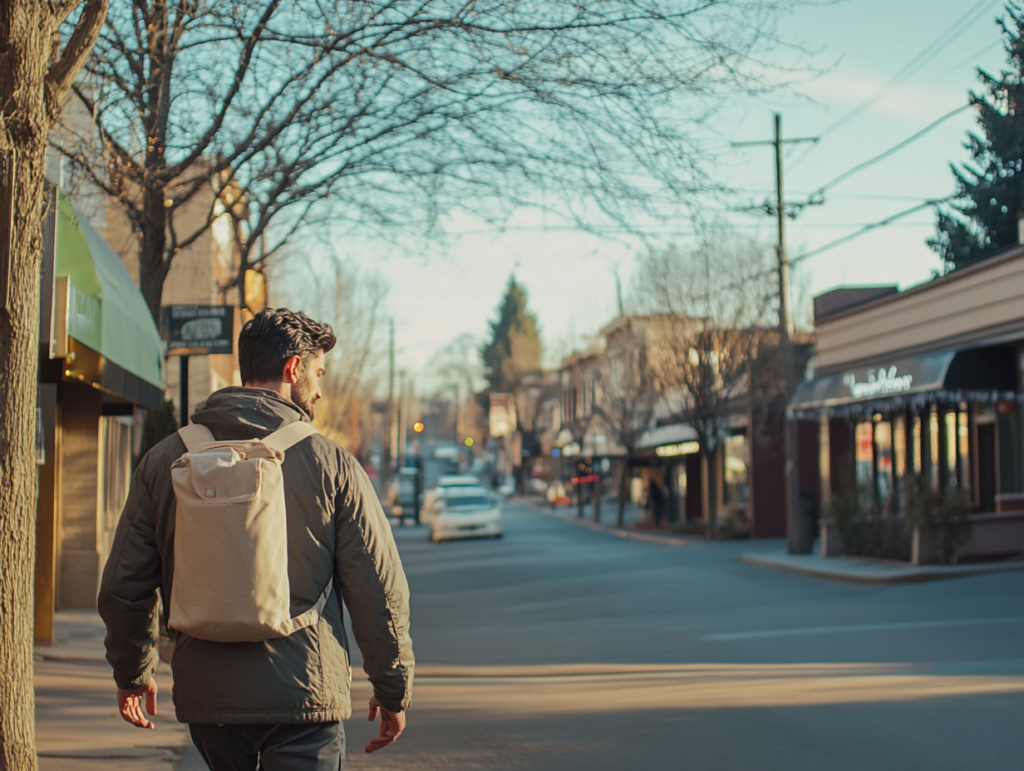
Renting a small room above a shutter repair shop, he lived quietly, spending most mornings on foot. Each day he took the same cracked sidewalk toward the college library, headphones dangling but never on, his thoughts busy with lectures and deadlines. The walk was uneventful—until he started noticing the dog.
It was always the same one: wiry, dust-colored, with paws caked in dirt. Other strays roamed the alleys, but this one fixated on a single spot near the slope, digging with tireless urgency. From dawn till nightfall, it clawed at the earth as though nothing else mattered.
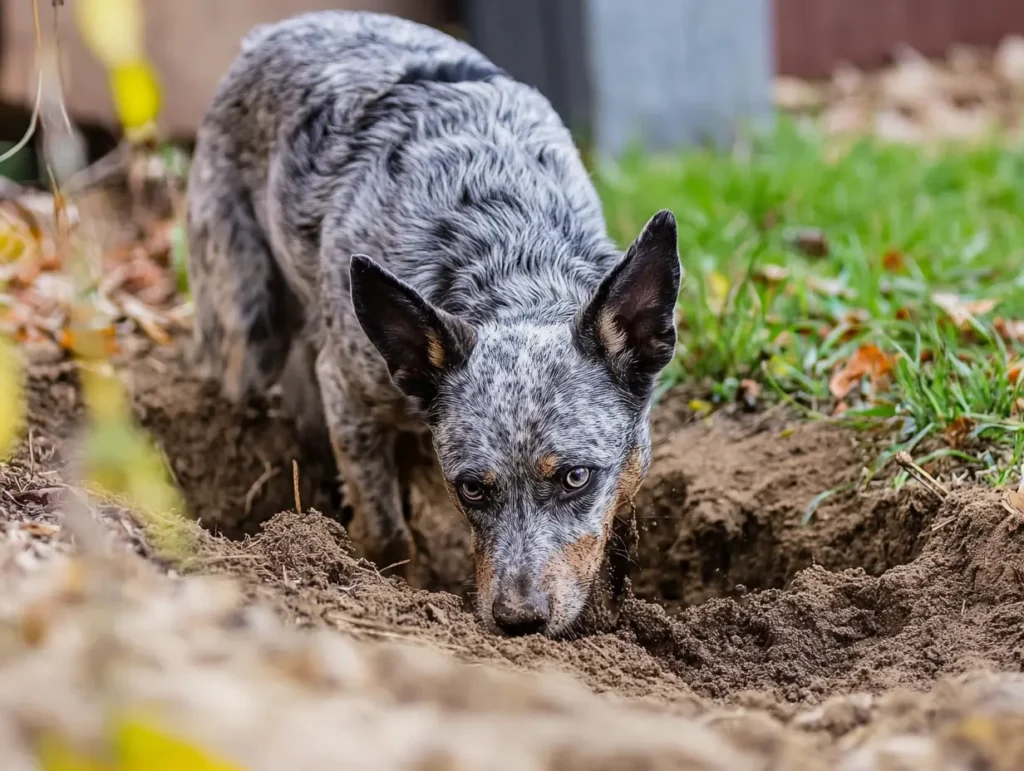
At first Ethan dismissed it as a quirk of stray dogs. But the persistence nagged at him. Eleven hours in a single day he’d seen it work—fur damp with sweat, ribs trembling, eyes locked on the ground like a miner guarding treasure. Something about it unsettled him.
By the end of the week, Ethan couldn’t help slowing each time he passed. Curiosity seeped into his routine. He found himself wondering what could drive an animal to such stubbornness. And sometimes, when the dog’s eyes met his, he felt the faintest prickle of invitation—an unspoken plea to get involved.
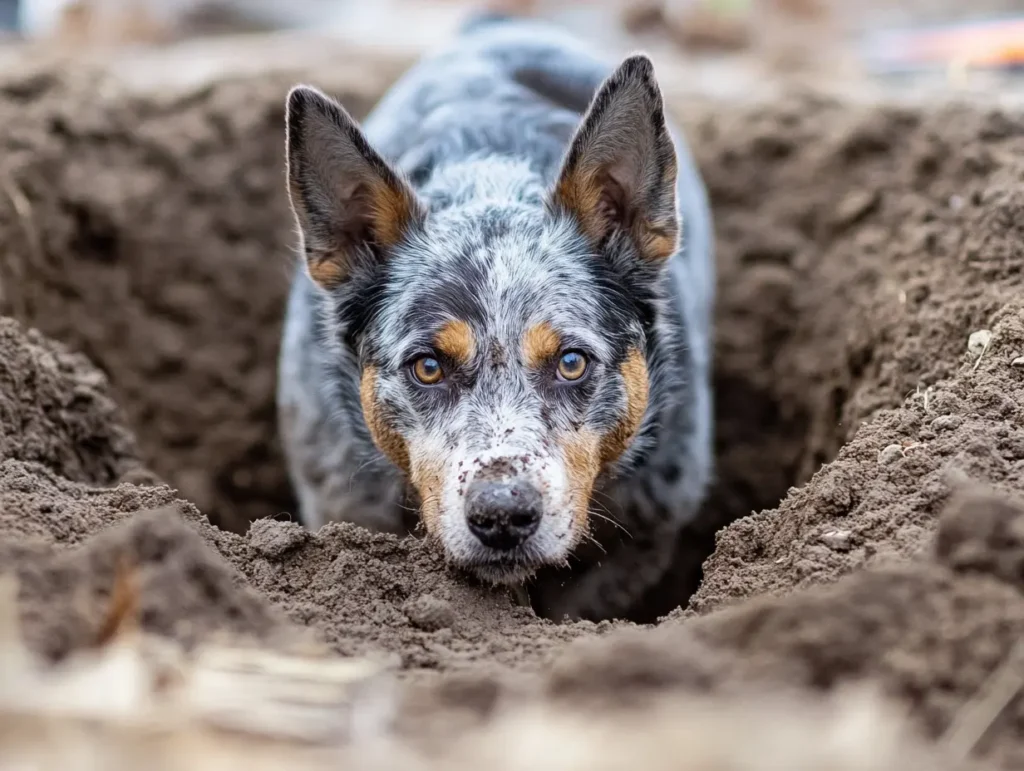
By late afternoon, Ethan realized the dog had been digging since morning. He’d passed it on his way to class, and now—almost eleven hours later—the animal was still there. Its movements were slower, its ribs quivering with every breath, but it hadn’t stopped once. Something about that persistence gnawed at him.
He crouched at the edge of the slope, watching. The dog’s claws were worn to nubs. Any normal animal would have given up long ago, yet this one seemed caught in a trance. Ethan’s first thought was simple: hunger. It had to be starving.
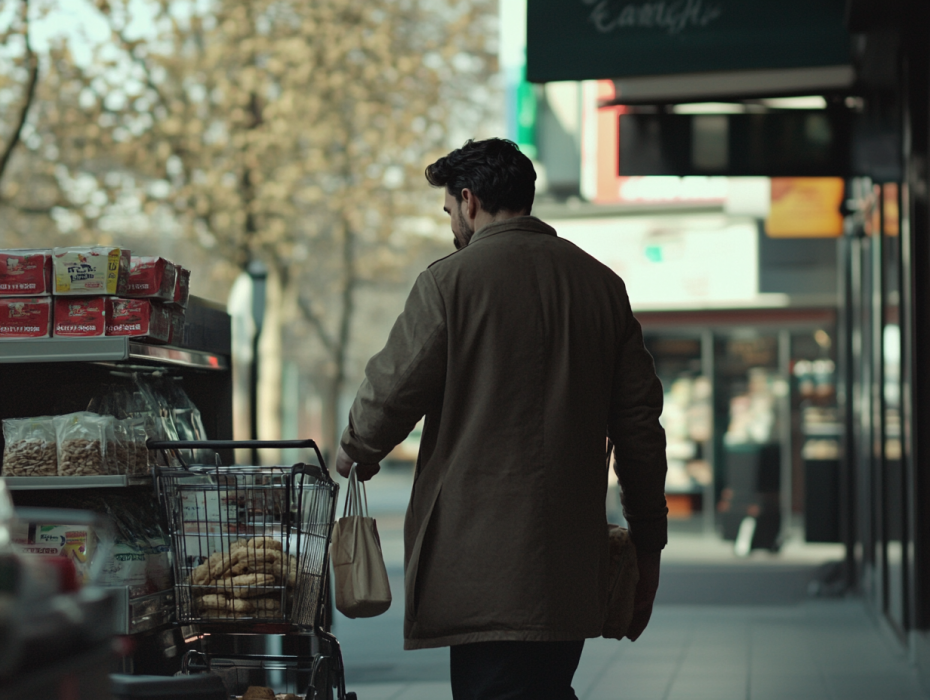
He ducked into a small shop, bought a packet of biscuits, and returned. The dog stiffened when he approached but didn’t run. Ethan broke off a piece and tossed it across the dirt. The animal sniffed once, then wolfed it down with frantic speed.
Piece after piece disappeared until the packet was gone. For a brief moment, Ethan felt satisfied, even proud. “That’s it,” he said softly. “You’re just hungry. Nothing more.” The dog licked its muzzle, sat back on its haunches, and looked up at him. Its eyes, though dulled by exhaustion, glimmered strangely.
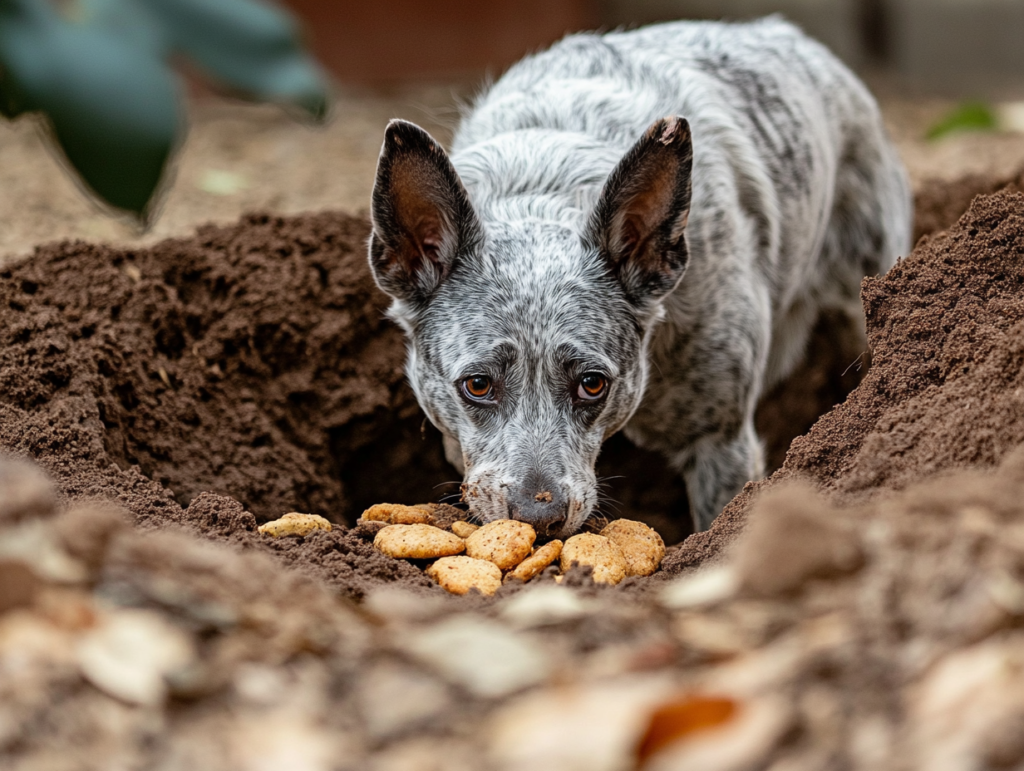
Then, without warning, it turned and resumed digging. As if the food had been nothing but a brief interruption, a pause to fuel its real mission. Soil flew in short, desperate bursts, claws scraping against stone, every movement filled with urgency. Ethan’s relief drained away, replaced by a creeping chill.
What could matter so much to a starving dog that it would spend eleven hours tearing at the earth? Watching the frenzy of its paws, Ethan felt he was witnessing something more than instinct—something closer to obsession. And for the first time, he wondered if he wanted to know the answer.
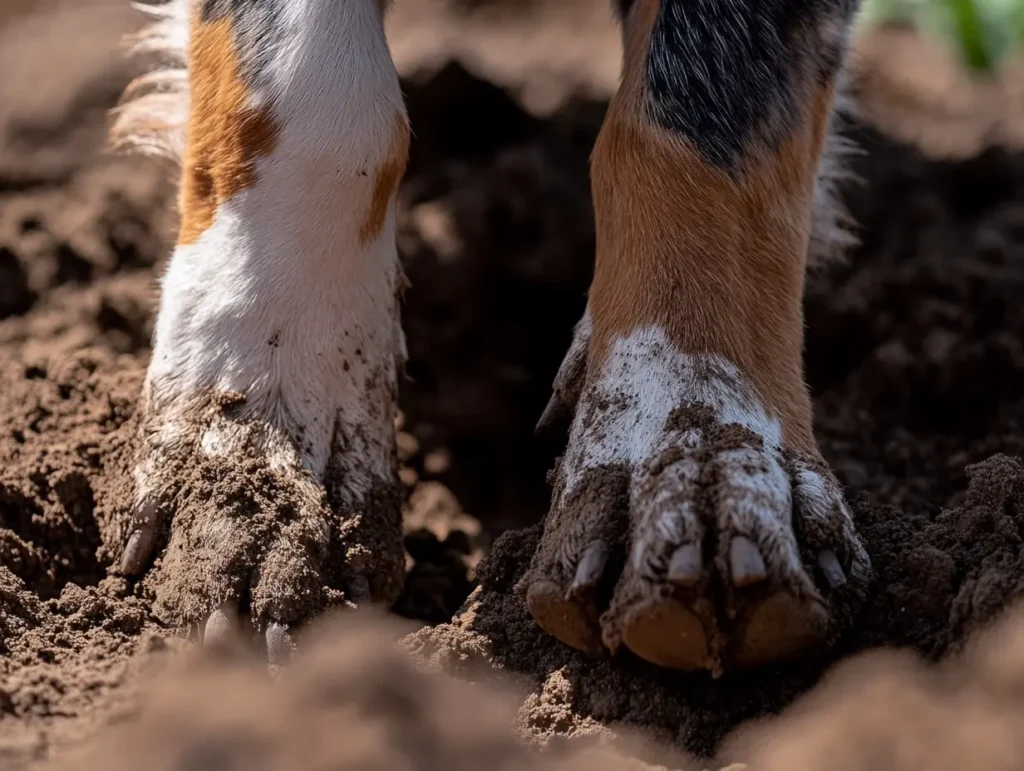
The sound of claws scraping dirt carried into Ethan’s dreams that night, and the next morning he returned almost without thinking. The dog was there again, the hole deeper now, earth piled high around it like a miniature grave. Ethan crouched close, pulse quickening. He had to see.
The dog glanced at him once, then stepped aside, panting. It was the first time it had yielded space, as though silently inviting him closer. Ethan hesitated, staring into the ragged pit, until a flicker of color caught his eye—something dark against the soil, not stone, not root.
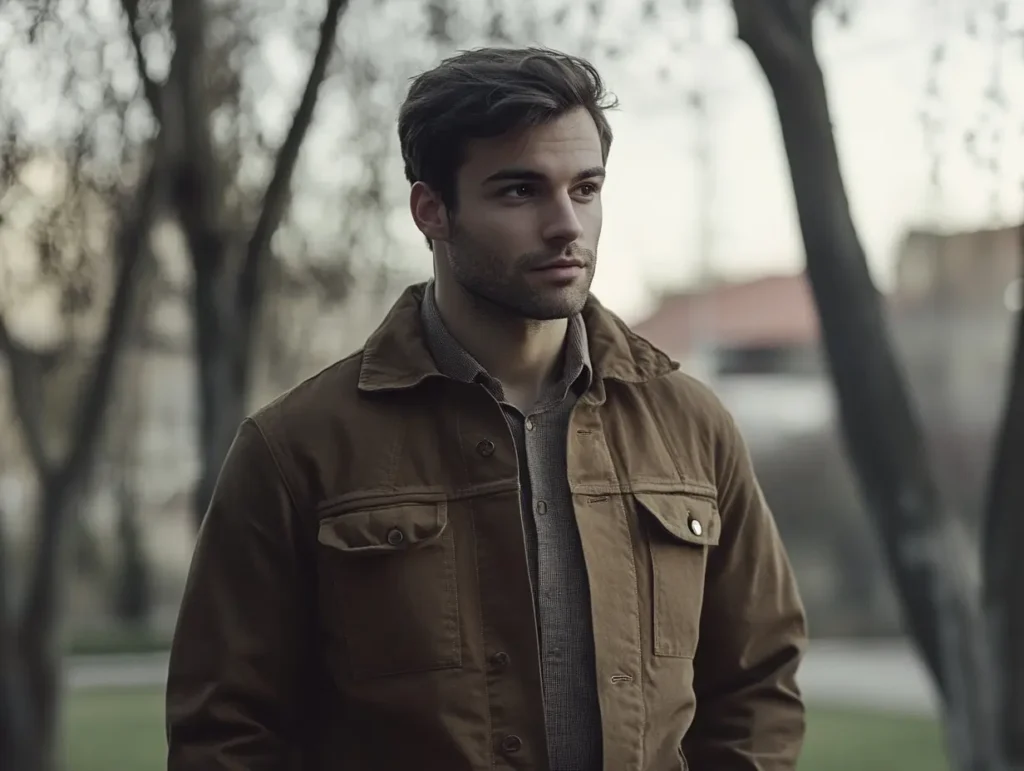
Leaning forward, he brushed away a thin layer of dirt with his fingers. Fabric. Stiff, earth-stained, torn. His stomach lurched. For one awful moment, his mind supplied images of buried clothes, crime reports, bodies hidden in shallow graves. His hands went cold as he froze in place.
The dog barked sharply, circling, urging him on. Ethan swallowed hard, pushing dirt aside until more fabric emerged, then the hard edge of something solid beneath it. A bag. Worn, weather-beaten, its seams stretched as though the earth itself had been gnawing at it.
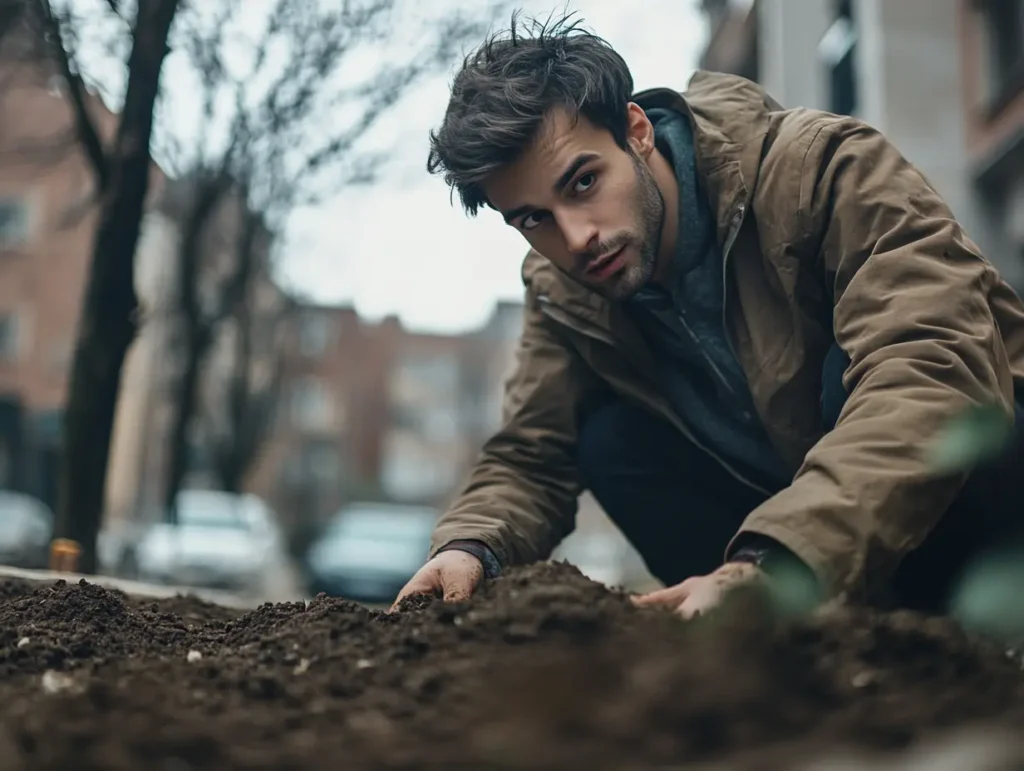
The animal lunged, teeth sinking into the canvas, tugging until the bag came loose with a dull thud. Something metallic clinked inside. Ethan’s breath caught again, dread and curiosity colliding. Whatever had driven the dog for eleven relentless hours lay sealed within this forgotten bundle.
Ethan sat back on his heels, staring at the battered bag in the dirt. His first instinct was to leave it alone, to walk away and pretend he hadn’t seen anything. Yet the dog wouldn’t let him. It clawed at the canvas, whining, teeth tugging as if desperate to rip it apart.
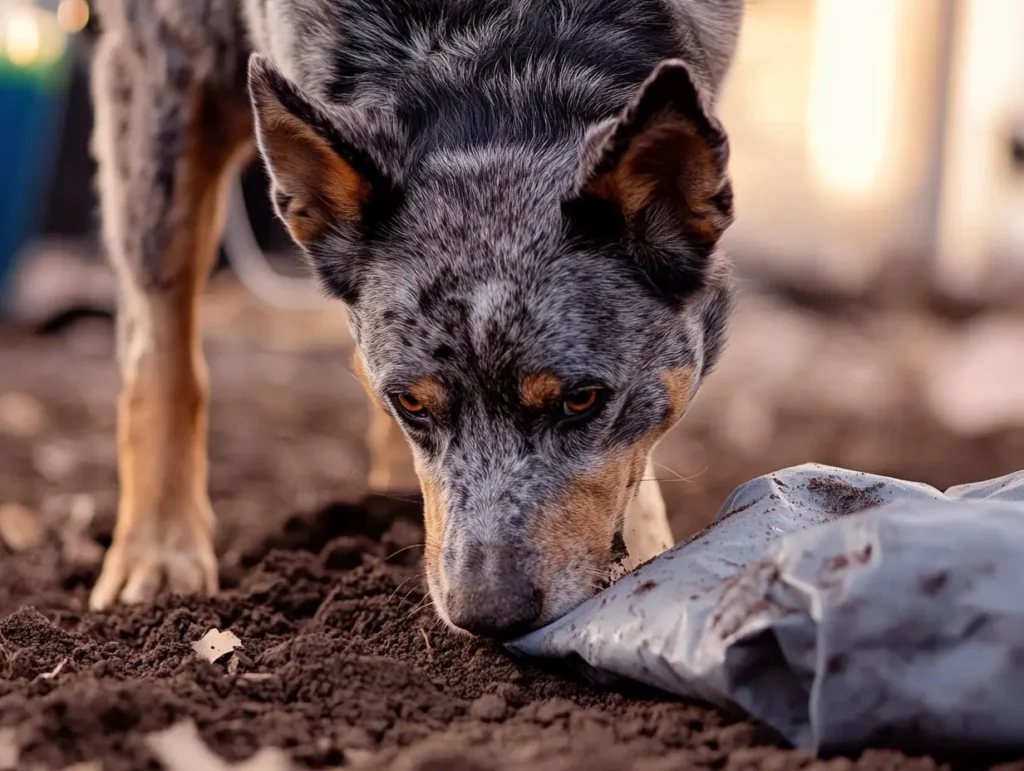
“Alright, alright,” Ethan muttered, pulling the bag closer before the animal shredded it completely. He pried open the torn flap. The stale odor of damp cloth and rusted metal spilled out—along with a faint, sour tang of fish. Inside, he saw a half-split can of tuna leaking through its dented rim.
But something else caught his eye. Wedged against the can was a faded chew toy, shaped like a bone, its once-bright fabric darkened with age. The tuna had seeped into it, giving it a pungent smell. Ethan emptied the bag quickly, laying its contents across the dirt so the dog wouldn’t destroy them.
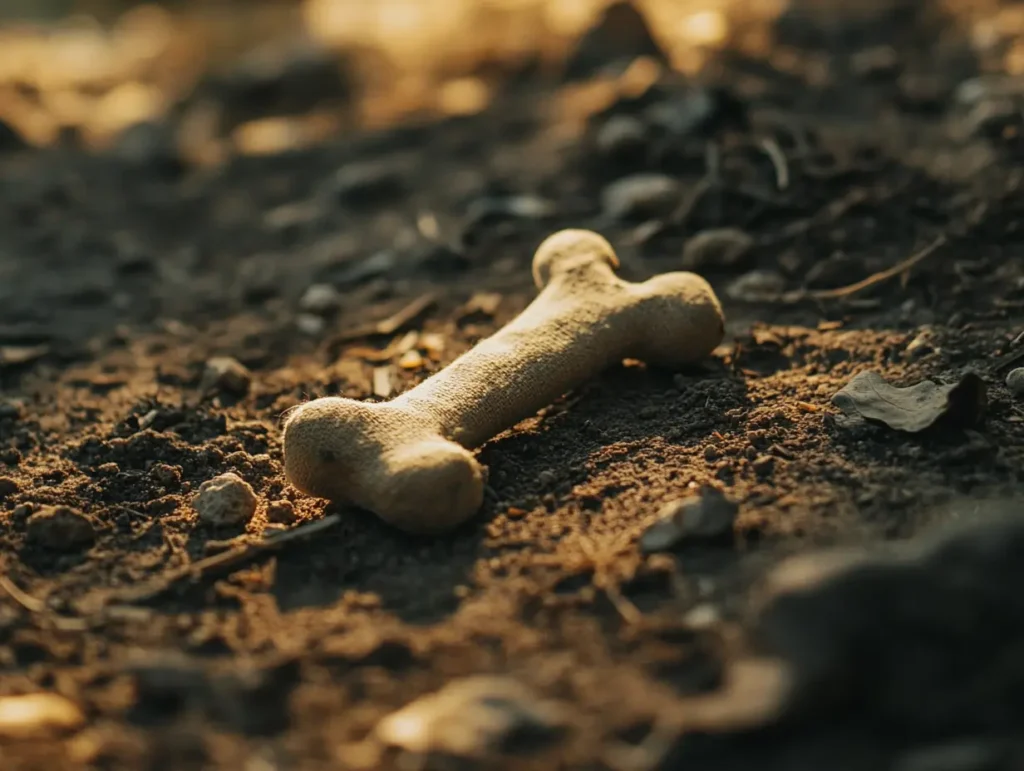
To his surprise, the animal lunged not for the tuna, but for the toy. It snatched the fabric bone in its jaws and carried it a few feet away, tail wagging weakly, as though it had found something precious it had been seeking all along. Ethan blinked, baffled.
He turned back to the rest of the contents: scraps of fabric, brittle paper, rusted odds and ends. And then he saw them. A key with a tarnished brass head, attached to a tag scrawled with an address. Beside it, a photograph, half torn, showing a couple standing close together, their faces lit with warmth and sunlight.
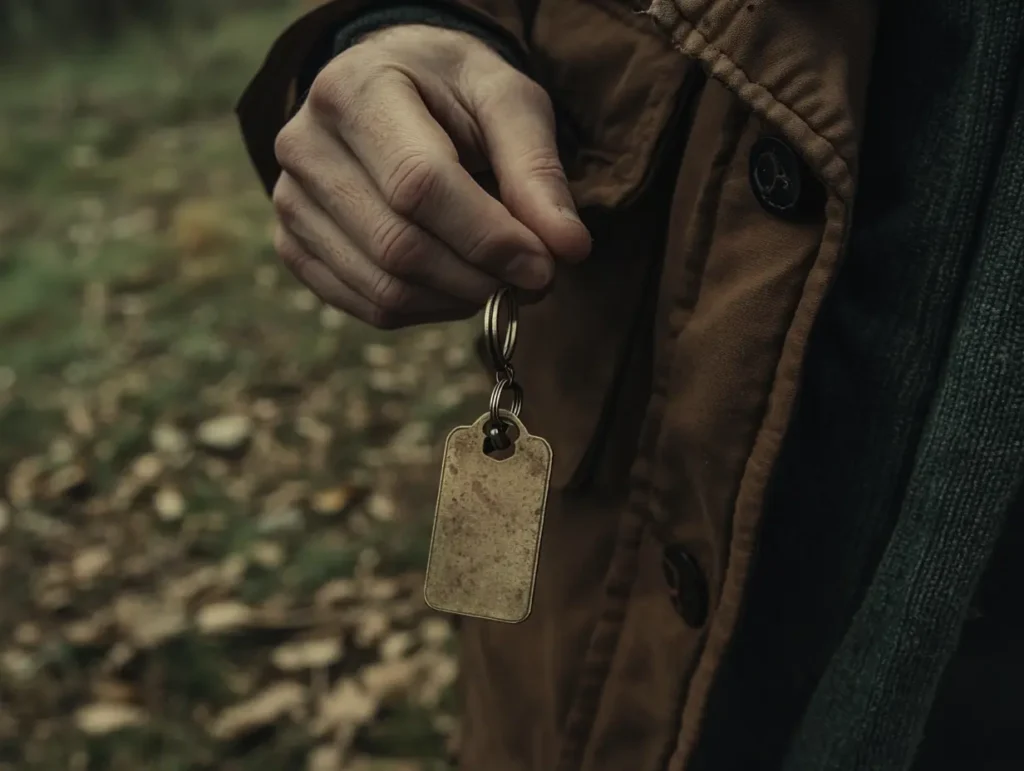
Ethan held the key between his fingers, reading the faint, smudged address. The letters didn’t match anywhere he knew in town. He felt the weight of it settle into him, heavier than the bag itself. This wasn’t just junk. These were breadcrumbs—left behind by someone who had once called this place home.
The dog no longer dug. With the fabric bone clutched gently between its jaws, it lay down beside the hole, tail giving a slow, weary thump. Its eyes, which had burned with a strange fire for days, seemed calmer now. As if the search had ended the moment the toy surfaced.
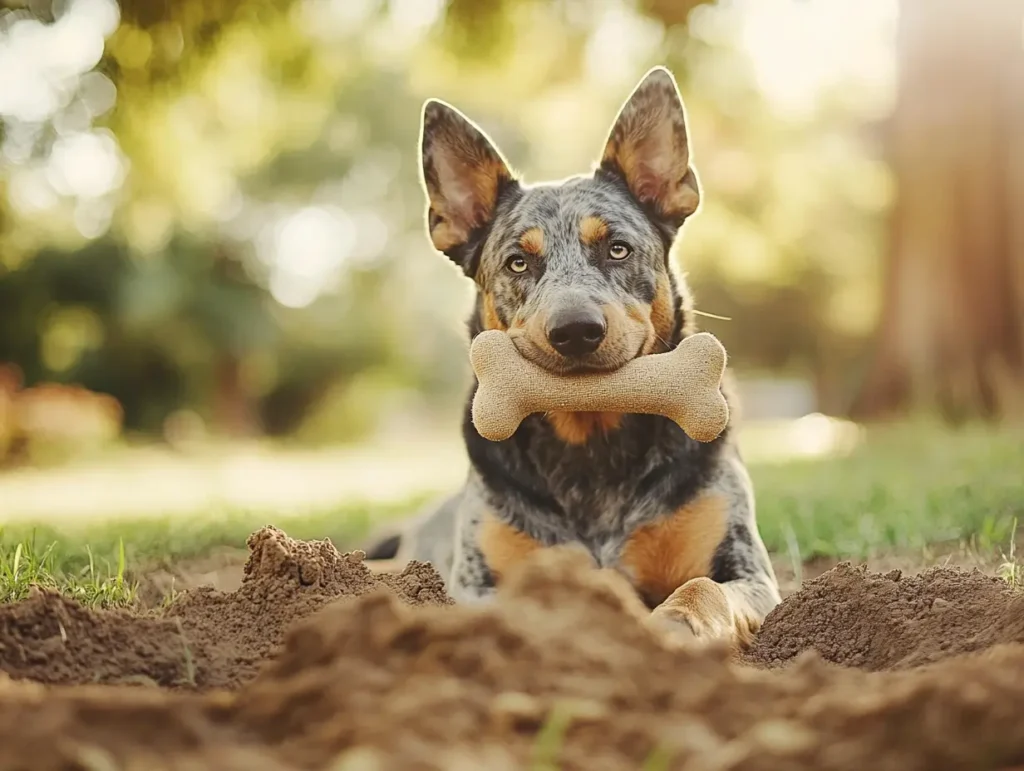
Ethan crouched beside it, frowning at the untouched can of tuna still leaking on the ground. He picked it up carefully and tossed it into a nearby trash bin, not wanting the dog to risk its health on spoiled food. In its place, he left a small bag of biscuits and a bowl of water he’d fetched from the corner shop.
The animal barely stirred, only nudging the toy closer with its nose before closing its eyes. Ethan studied the scene—this strange, dirt-covered guardian finally at rest—and felt a twinge of responsibility. Whatever had driven it to dig for eleven hours, its task seemed finished. His, however, was just beginning.
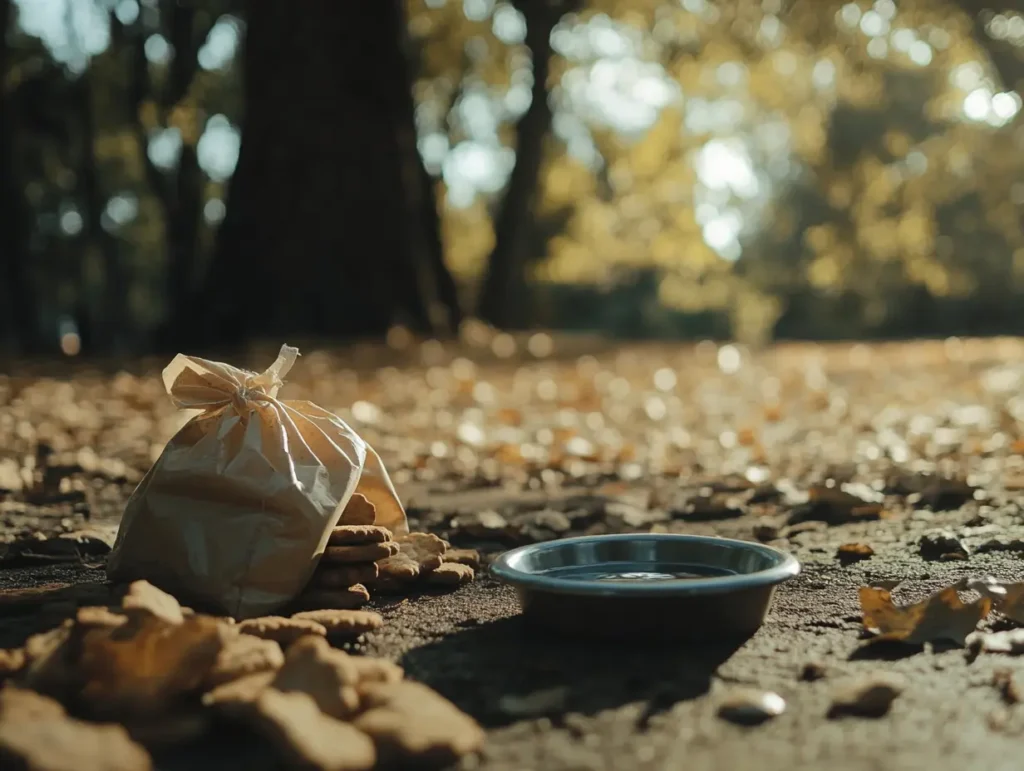
He turned the key in his hand, reading the faded tag again. An address scrawled in uneven ink: 25 Riverside Street. Ethan mouthed the words under his breath, trying to place it. He wasn’t familiar enough with the town’s layout to know exactly where it was, but he decided he would find out.
Pocketing the key and the half-torn photograph of the couple, Ethan rose, adjusted his backpack, and set off down the hill. Curiosity pressed him forward, each step weighted with questions that had no easy answers. Somewhere in this town—or what was left of it—lay the truth.
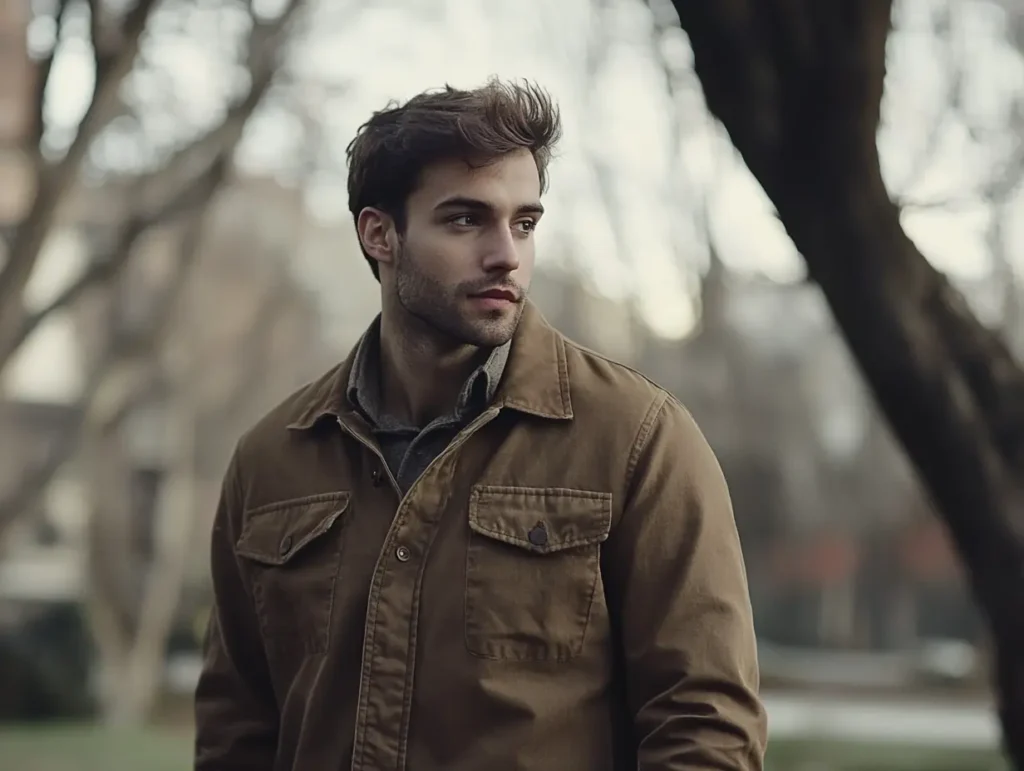
Ethan followed the hillside roads with the address looping in his head: 25 Riverside Street. He’d never noticed a Riverside before, but then again, he hadn’t explored much beyond the campus and his rented room. The streets wound narrow and uneven, some fading into dirt paths that seemed forgotten by time.
He checked the numbers as he walked—Riverside Street 12, 14, then 18. His pulse quickened. He was getting closer. But then the houses ended abruptly at Street 20. Beyond that, the road curved sharply upward toward the wooded slope, no sign of new houses, only broken stone walls and overgrown weeds.

Ethan frowned, retracing his steps to make sure he hadn’t missed a turn. He circled the area twice, scanning for another lane or hidden driveway. Nothing. Riverside simply stopped where it stopped. No number 25. No hint of anything ever having been there.
The photograph in his pocket seemed heavier now. The couple’s faces smiled up at him from memory, but the address beneath the key pulled him toward emptiness. Suspicion gnawed at him: was the tag a mistake? Or worse, a cruel joke, left behind to mislead whoever might stumble across it?
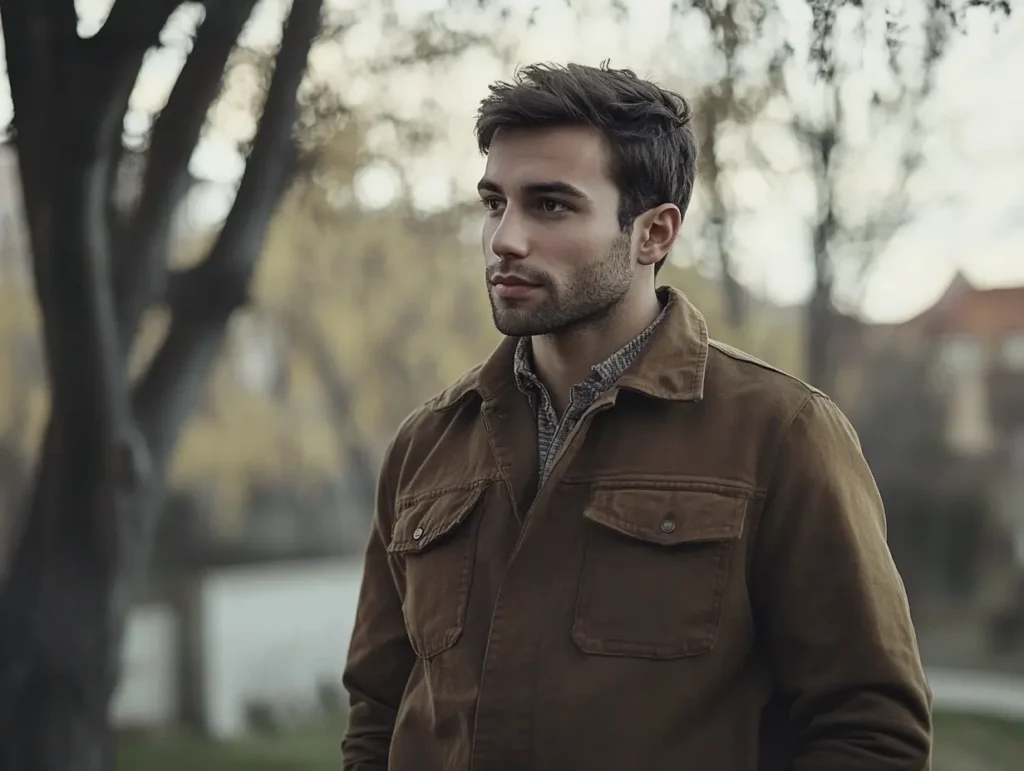
He lingered at the edge of the street, staring at the unbroken slope ahead. Confusion pressed against him with each passing moment. He had the address, he had the key—but there was no house, no door, nothing to match what lay in his hand.
Ethan walked the length of Riverside twice, key clutched in his hand, but each time the street ended at the same abrupt curve. There was no sign of Street 25, no hidden turn or narrow lane he might have overlooked. The address kept tugging at him, impossible and insistent.
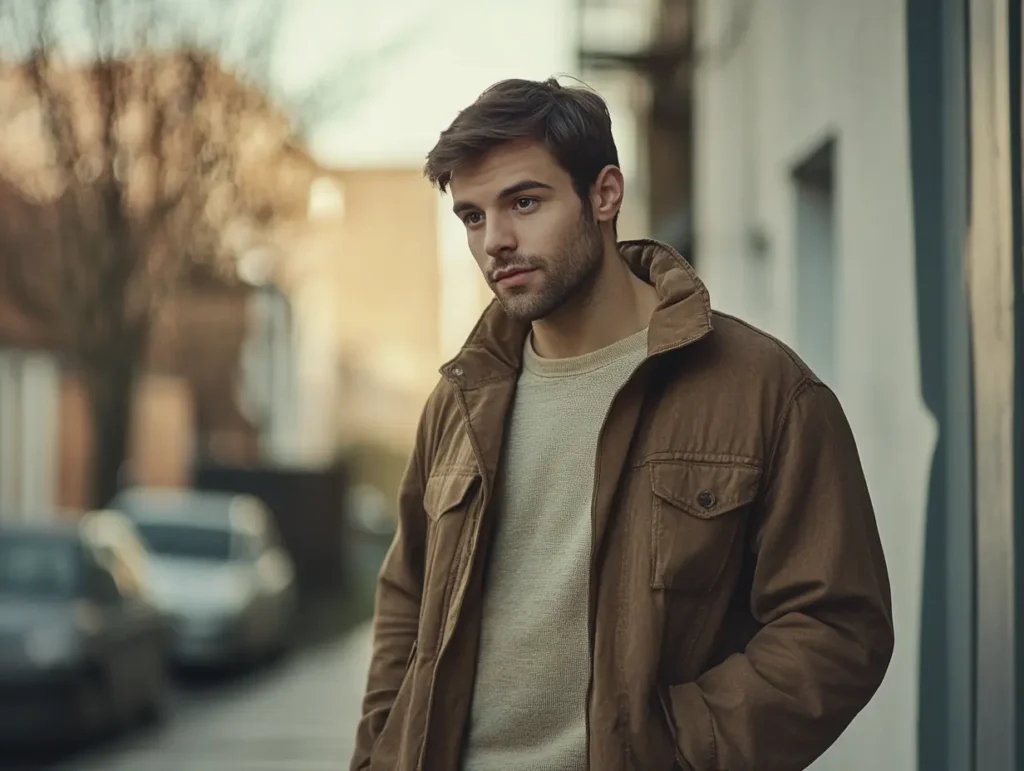
He stopped a passerby, an older woman carrying groceries. “This is Riverside Street, right?” he asked, trying to sound casual. She nodded without hesitation, even pointed back down the row of houses. “Riverside, yes. Numbers stop up there by twenty. You’re at the end of it now.”
Her certainty only deepened his confusion. Ethan thanked her, but his mind raced as he turned back toward the slope. The address wasn’t a mistake—he’d read it a dozen times. Yet it simply didn’t exist. He lingered there, staring at the empty space where something should have been, wondering what could erase an entire place without a trace.

On his way back through town, he stopped a delivery driver, then a pair of schoolkids, each time asking the same question: Riverside Street, number twenty-five. Every answer was the same—confused looks, polite shrugs, even a laugh or two suggesting he had the wrong place.
Frustration prickled at him. He showed the address tag once, hoping it might spark recognition, but it only earned another shake of the head. With each dismissal, the doubt grew heavier, until he felt like he was chasing a place that had never existed at all.
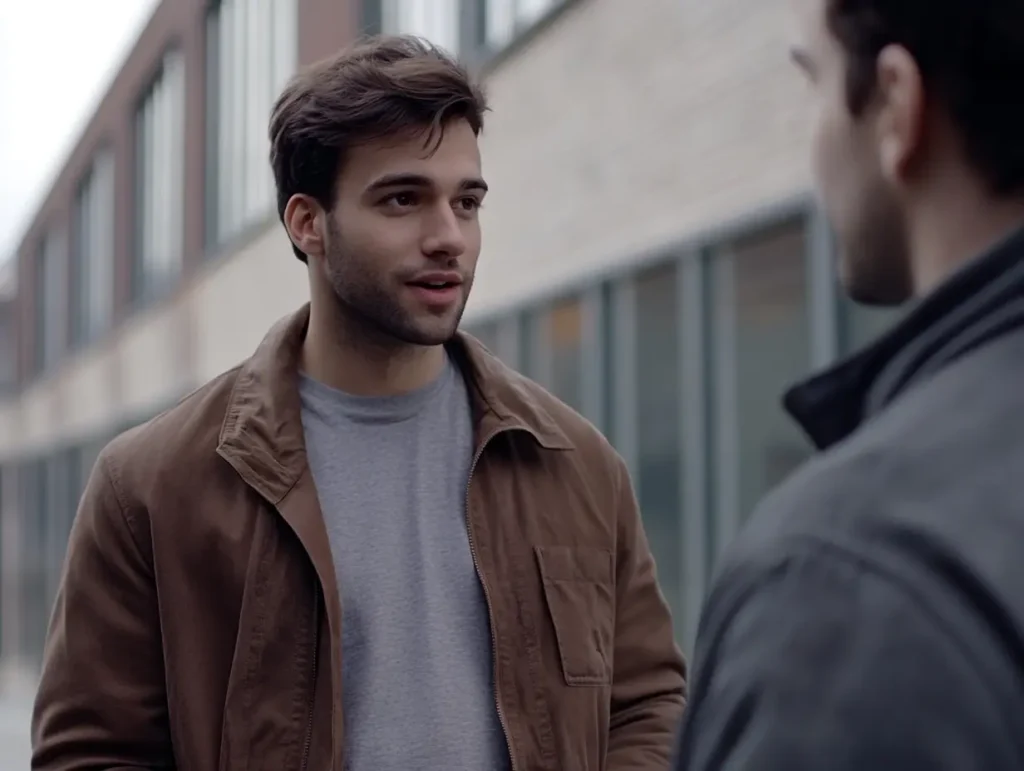
Finally, he approached an elderly man sitting outside a barbershop, cane resting against his leg. Ethan repeated the address. The old man’s gaze sharpened, his lips pressing into a thin line before he sighed. “Riverside twenty-five,” he said quietly. “There hasn’t been a twenty-five in fifty years.”
Ethan frowned. “What do you mean?” The man tapped his cane against the ground. “Landslide took it. Whole stretch of houses, gone in a single night. Nothing left but earth and stone. You’re standing at the end of what remains.”
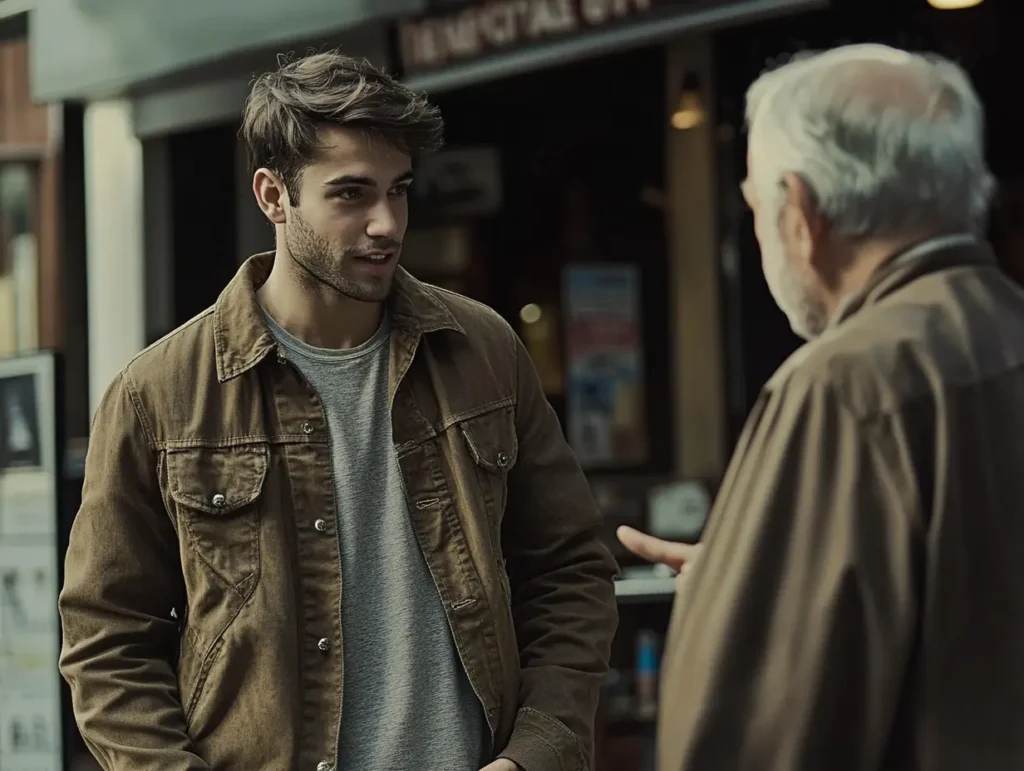
Ethan walked away from the barbershop in a daze. The old man’s words circled in his mind—an entire row of houses swallowed by a landslide, gone in a single night. He glanced again at the key and the photograph in his pocket. How could something so ordinary outlast something so final?
At the end of Riverside, he stood staring at the hillside where the street ended, trying to imagine what had once stood there. Families, homes, lives—now erased. The photograph’s smiles seemed almost mocking, as if daring him to fill in the missing half of the story.
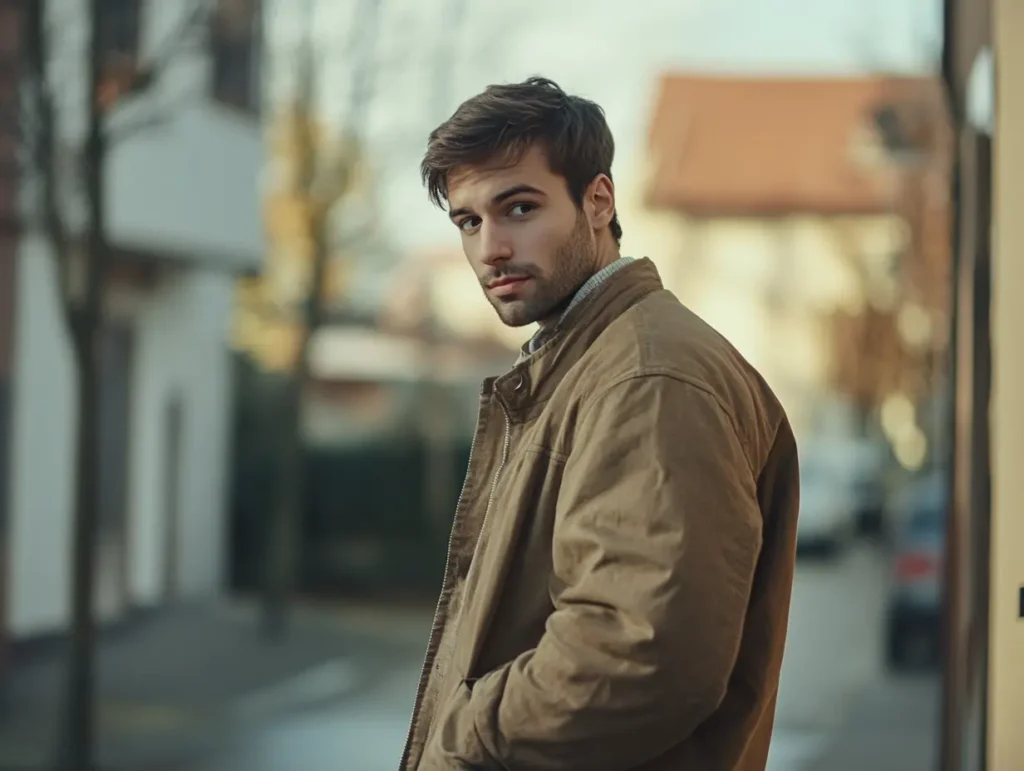
He turned the key over in his hand, the cold brass warming against his palm. The address was still etched into it, stubborn and real, yet it pointed to a place that no longer existed. That contradiction sat heavy in him, demanding answers. Ethan knew one thing: if he wanted to understand what he had stumbled onto, he would have to look deeper.
The mystery wasn’t finished, not by a long stretch. The next morning Ethan found himself at the town library. Ethan asked about Riverside, and the clerk pointed him toward the archives. Soon he was leafing through brittle newspapers, headlines blurring until one froze him in place: “Landslide Destroys Riverside Homes.”
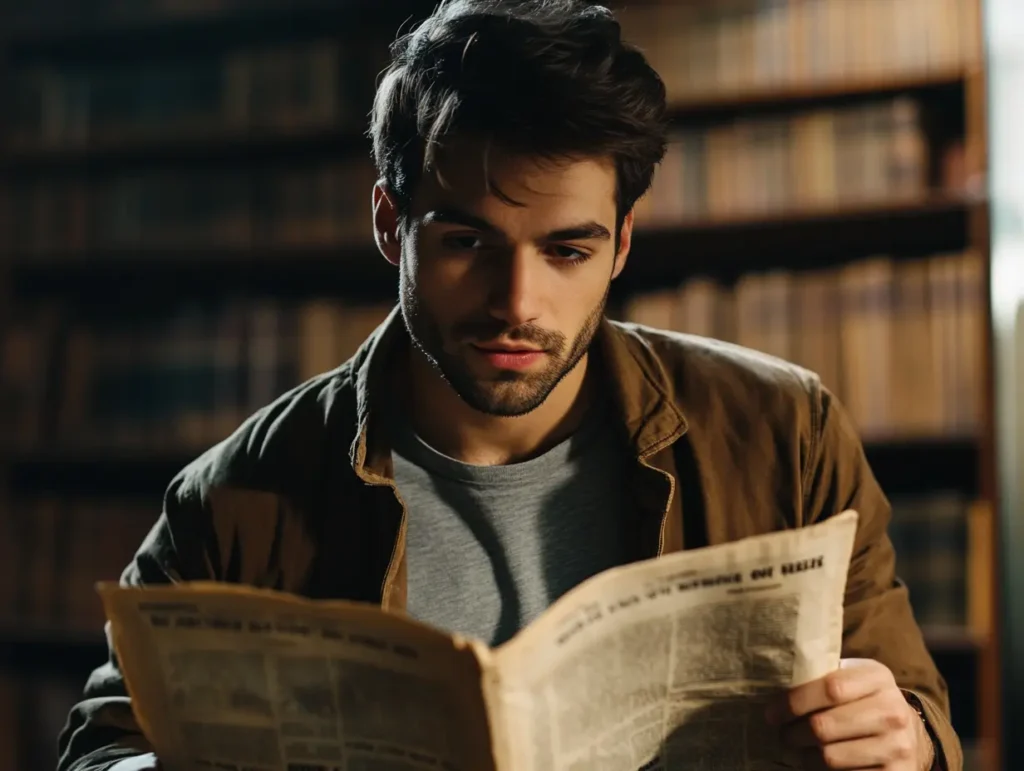
The photograph beneath showed rubble and broken beams scattered across the slope. Families wrapped in blankets huddled together, faces blurred by the poor print. Ethan’s eyes lingered on them, searching for something familiar. He traced every word, every smudged name, but the article ended with little more than numbers—homes lost, people displaced.
He leaned back in his chair, unsettled. The key in his pocket suddenly felt heavier, its address a ghost tethered to an event most had already forgotten. The torn photograph of the couple offered no answers, only questions that grew sharper the more he stared. Somewhere in these archives, Ethan felt, lay the missing threads. He only had to find them.
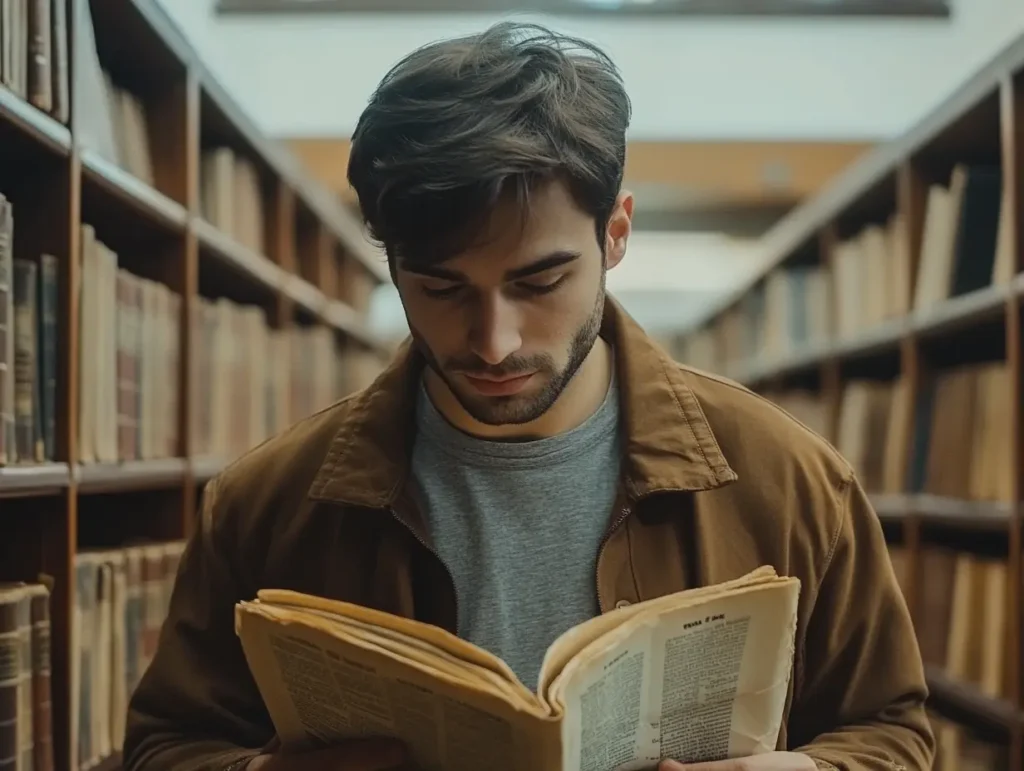
Hours passed in the quiet hum of the library. Ethan sifted through brittle clippings and half-faded reports, each one repeating the same story: a sudden slide of earth, houses buried, families scattered. The names blurred together until his eyes ached, yet he forced himself to keep reading.
Near the bottom of one brittle page, Ethan’s gaze snagged on a faded column listing the households along Riverside Street. The print was smudged, the numbers uneven, but one line leapt out at him: 25 Riverside. His fingers tightened on the key tag in his pocket—the same address, etched in brass.
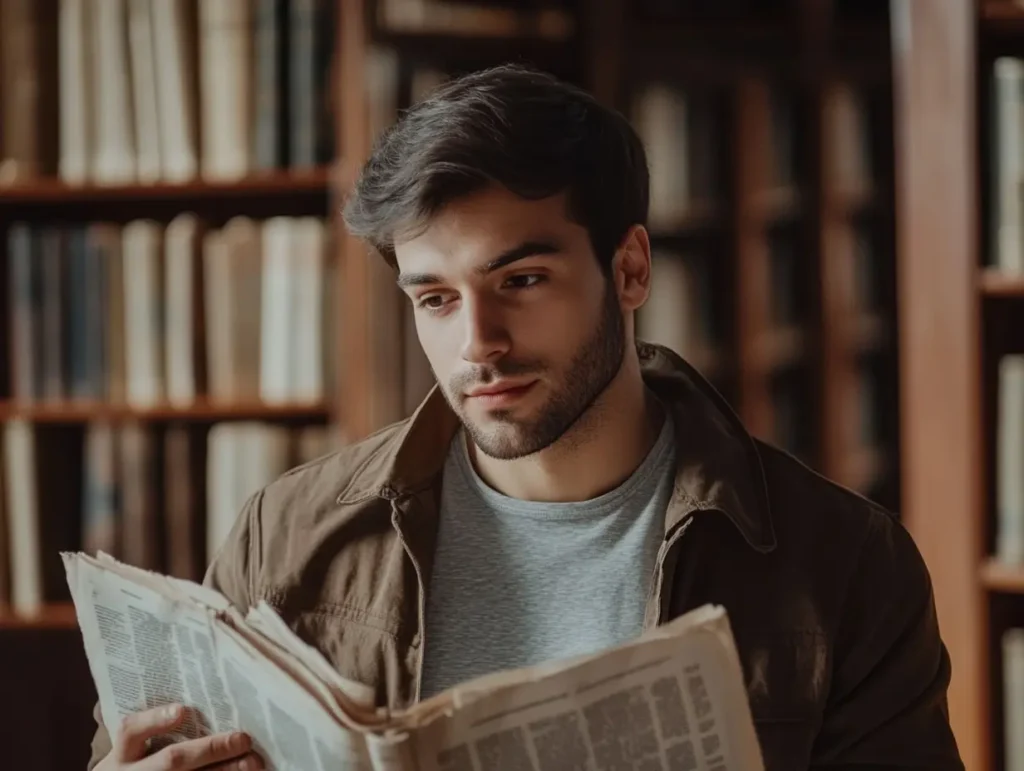
Beside the number was a surname: Blackwood. Ethan copied it carefully into his notebook, circling it twice. The page gave nothing more—no mention of what became of the family, no hint of survival or loss. Just a name, anchored to an address that no longer existed.
He stared at the word until the ink blurred in his vision. For the first time since unearthing the bag, he felt he was brushing against something real. Yet the closer he came to an answer, the more the questions gathered, heavy and insistent.
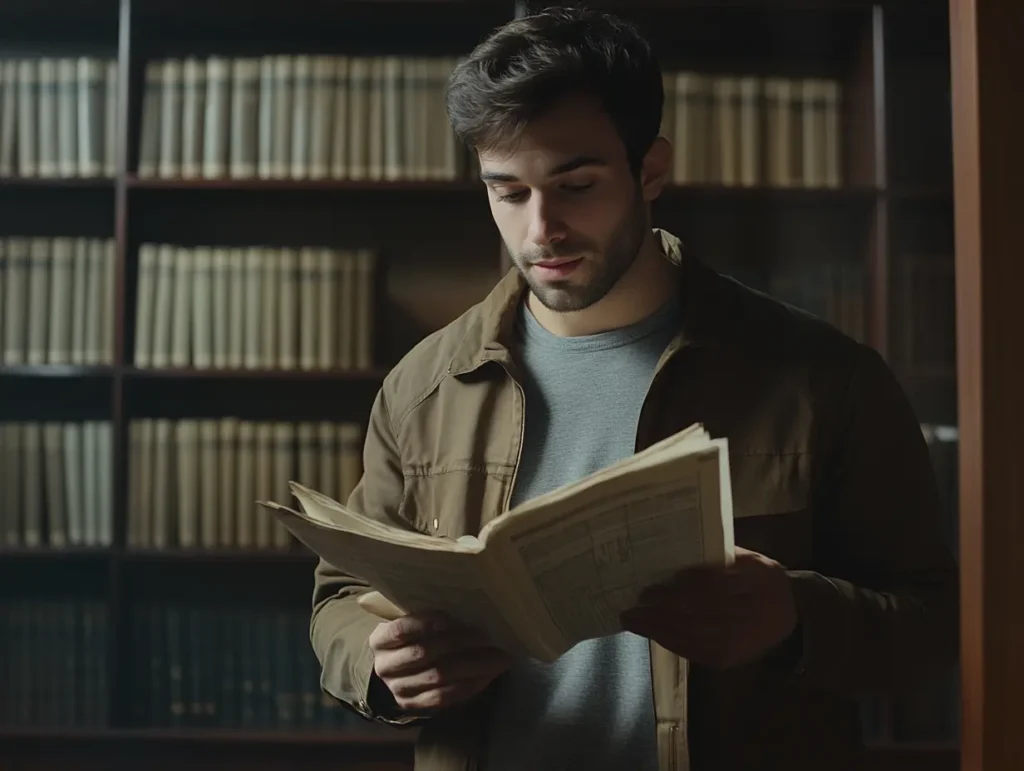
Ethan left the library with the name circled in his notebook: Blackwood. It felt fragile, like a thread that might snap if he pulled too hard, but it was the only direction he had. As he walked through town, he found himself glancing at shop signs and mailboxes, scanning for the name as though it might appear by chance.
At a corner café, he asked the barista if she knew of any Blackwood families nearby. She shook her head, brow furrowed as though searching her memory. An elderly man sipping coffee at the next table chimed in, saying the name sounded familiar but old—like something from his parents’ stories.
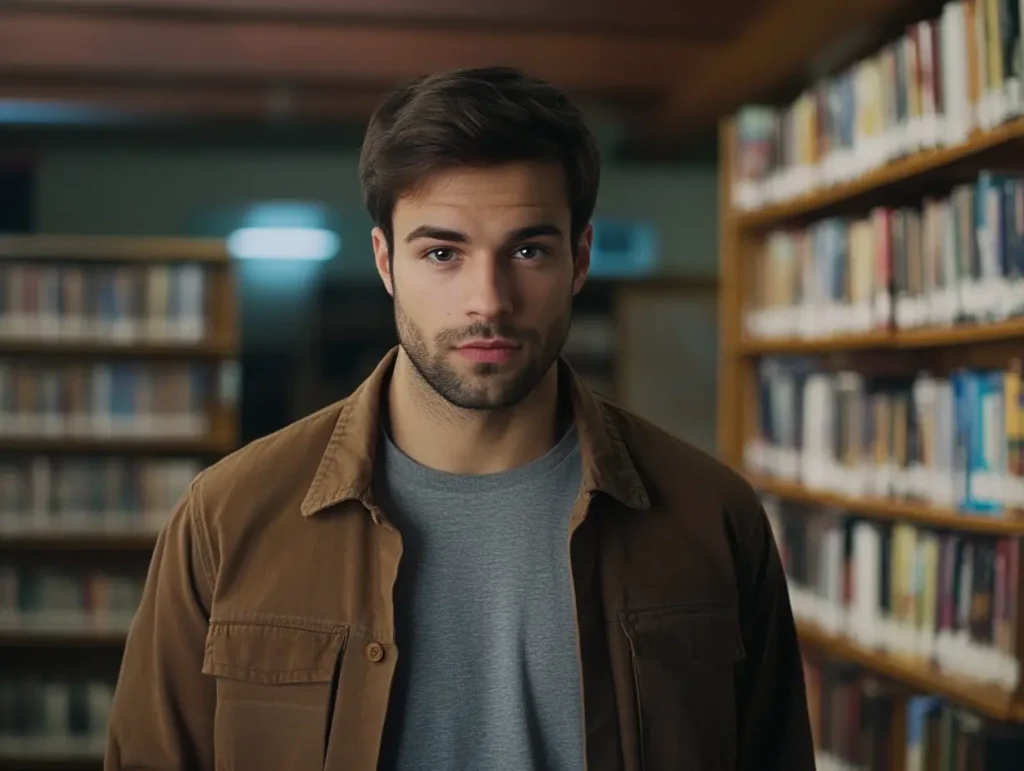
Ethan pressed further, stopping at the post office, then a hardware store. Each time he received the same response: uncertainty, vague recollection, or polite dismissal. The name hung just beyond reach, close enough to taste but not close enough to touch.
By dusk, he found himself back on Riverside Street, notebook in hand, the key heavy in his pocket. He whispered the name under his breath—Blackwood—as though speaking it might summon someone, anyone, who still remembered.

By the third evening, Ethan’s resolve had thinned. He had walked circles around the town, notebook pages filled with question marks and half-answers, each inquiry about the Blackwood family ending the same way: confusion, polite shrugs, or vague recollections that led nowhere.
As dusk settled, he sat on a bench near the square, debating whether to abandon the search. Maybe the name belonged to no one anymore, swallowed by the same hillside that had erased the houses. He sighed, closing his notebook with a tired snap.
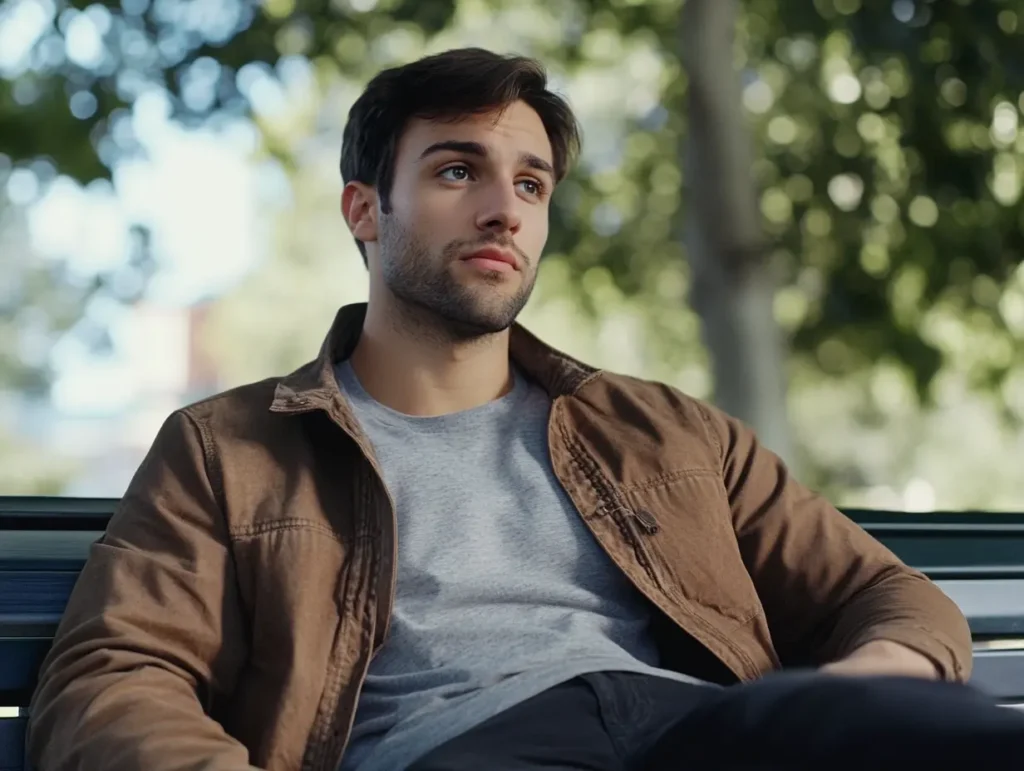
“Excuse me,” a voice said. Ethan looked up to see a woman in her sixties adjusting a shopping bag on her arm. “I couldn’t help overhearing. You’ve been asking about the Blackwoods?” His heart jolted. He nodded quickly, words catching in his throat.
The woman studied him for a moment, then gave a slow nod of her own. “I remember that family. Riverside Street, long ago. You’re not wrong to look—but most folks don’t talk about them anymore.”
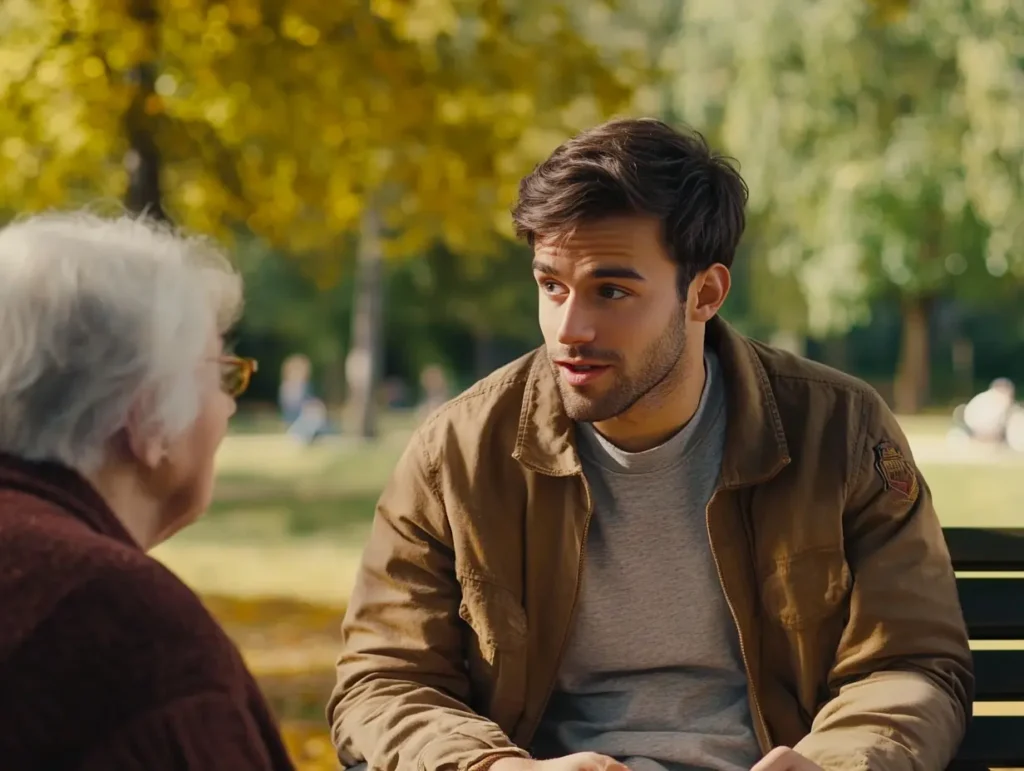
The woman shifted her bag higher on her arm, her gaze thoughtful. “The Blackwoods lived at the far end of Riverside, right where the hillside broke. The night of the landslide… most of them didn’t make it.” She hesitated, her voice softening. “Only the boy survived. He was sent to a foster home after.”
Ethan gripped the notebook tighter, the torn photograph burning in his pocket. “Do you know what happened to him after that?” he asked. She gave a small nod. “He left for many years. But I heard he moved back about a decade ago.
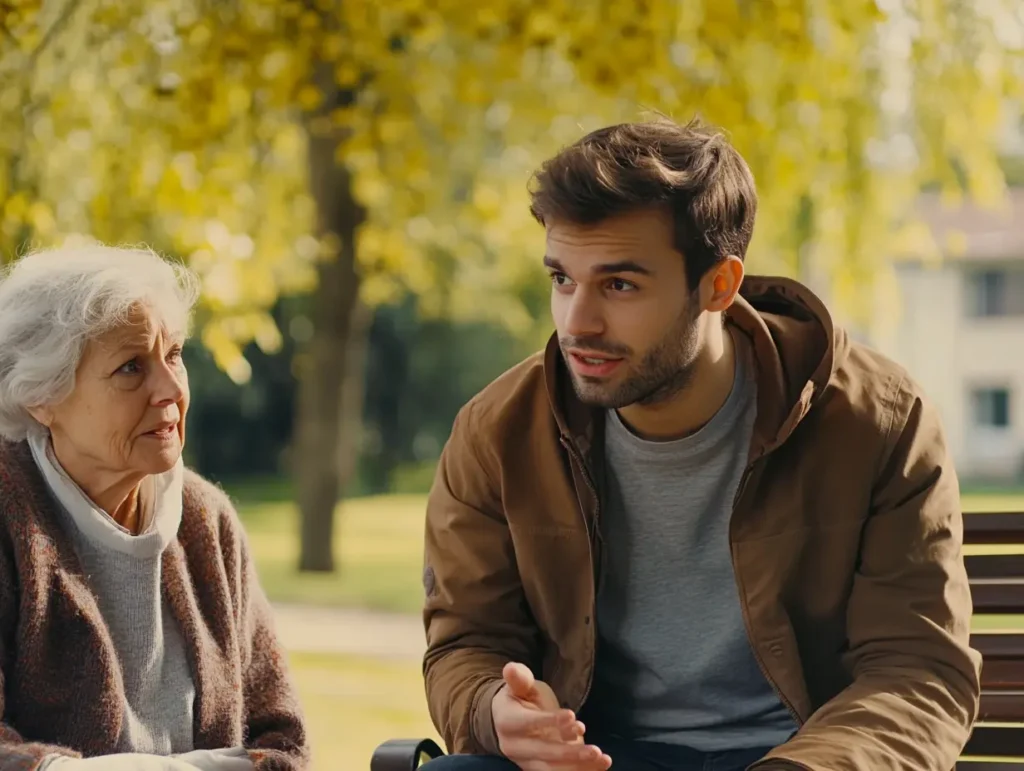
Lives in a little house near the edge of town now. Keeps to himself, not much for conversation.” Her eyes flicked to Ethan’s, as though weighing whether to say more. “If you’re looking for answers… you’ll likely find them with him.”
The directions were simple enough, though Ethan’s heart thudded harder with each step. The woman’s words echoed in his ears—the boy was the only one who survived. Now, decades later, he was walking toward a life rebuilt from ruins.
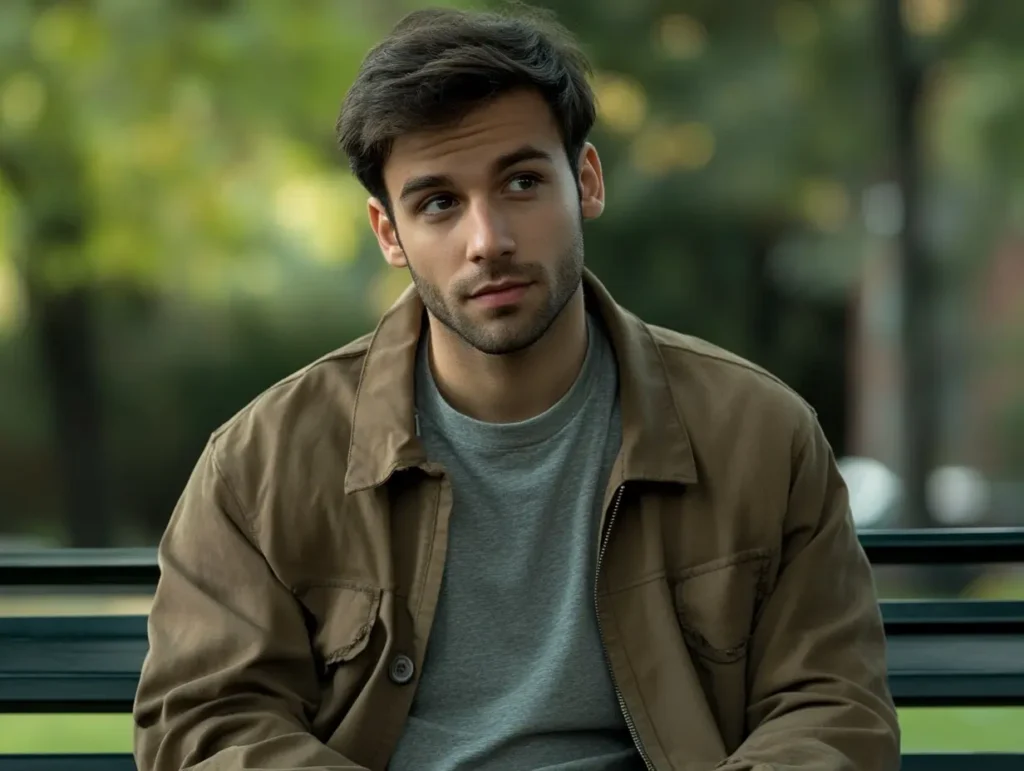
At the edge of town, he found the house. It was small, weathered, the paint faded to gray, but the garden was neat, each plant trimmed with quiet care. A curtain shifted faintly at the window, and for a moment Ethan wondered if he was already being watched.
He stopped at the gate, pulling the key and the photograph from his pocket. The brass glinted faintly in the waning light, the couple’s smiles staring back. He clenched both in his hand, drawing a breath. Then, before doubt could root him to the spot, Ethan pushed the gate open and walked up the path to knock.
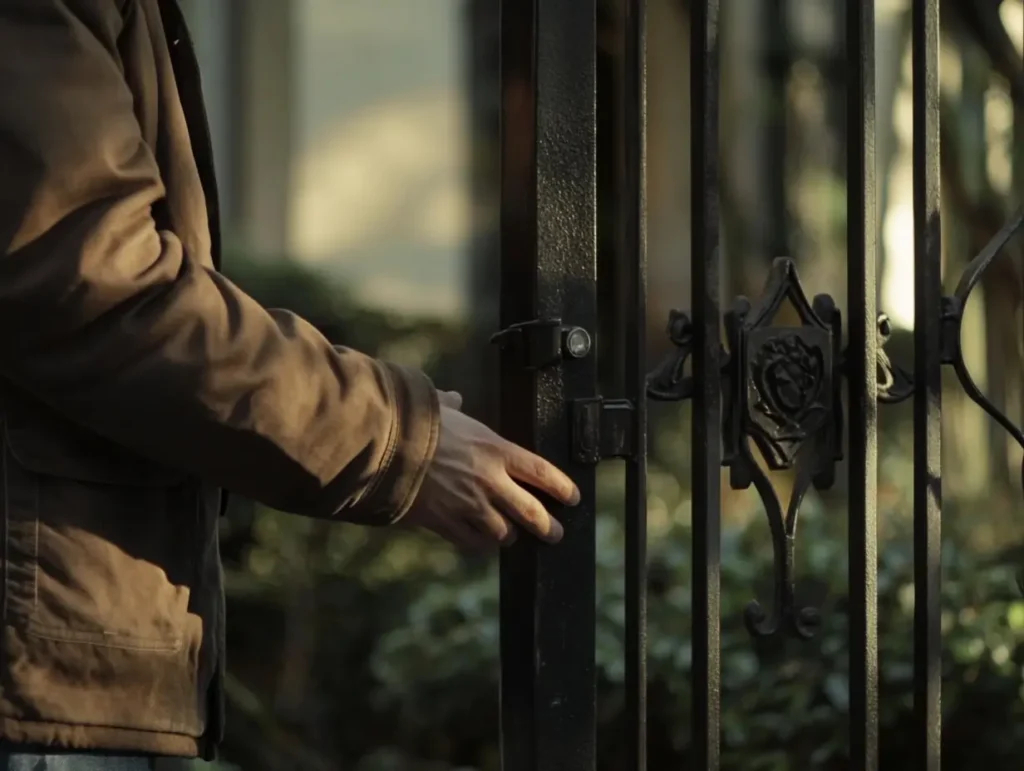
The knock echoed dully against the wooden door. For a long while, nothing stirred. Ethan shifted his weight, wondering if the woman had been wrong, if no one truly lived here. Then came the slow drag of footsteps, uneven, hesitant, as though pulled forward against their will.
The door creaked open just a sliver, revealing an old man with sunken eyes and a lined face. His shoulders were stooped, his voice gravel-thin when he finally spoke. “What do you want?” There was no hostility in the words, only a tired sadness, like someone who had answered too many questions in a life filled with loss.
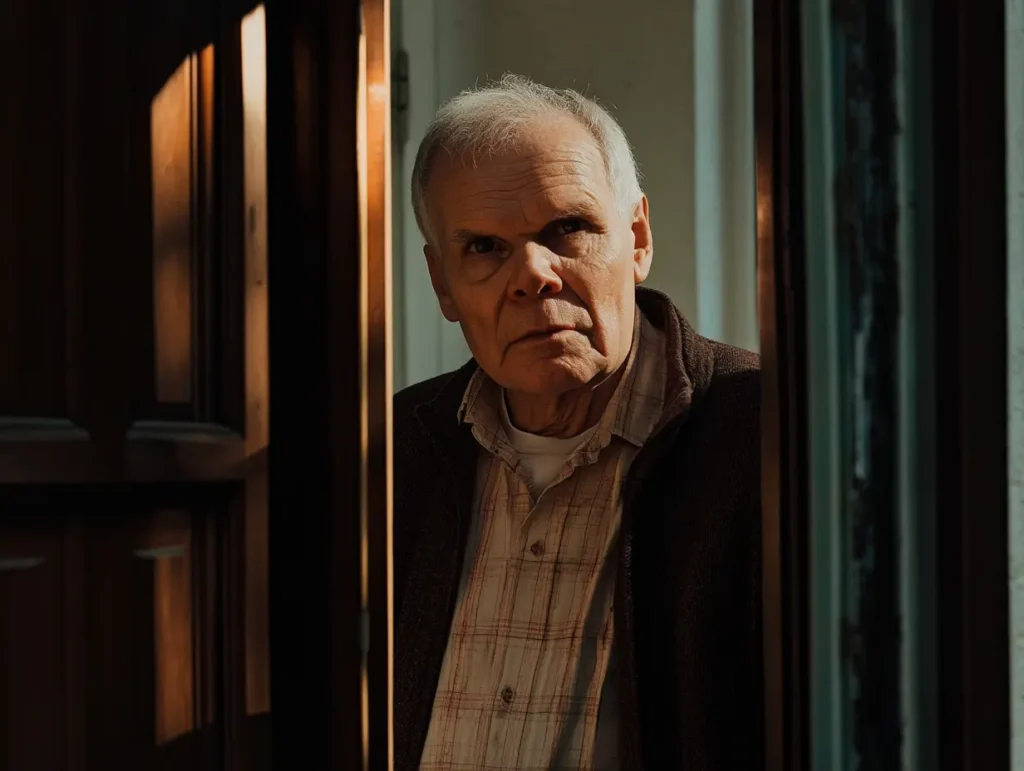
Ethan swallowed, nerves tightening his throat. The photograph trembled in his hand, half-hidden, the weight of the key pressing against his palm. He hadn’t expected the man to look so fragile, so worn, and yet the moment felt charged, as though everything had led him here.
Slowly, he drew the torn picture from the bag and held it out with both hands. “I think this belongs to you,” he said quietly. The old man’s breath caught the instant his eyes focused on the faded image of a couple, their faces softened by creases and time.
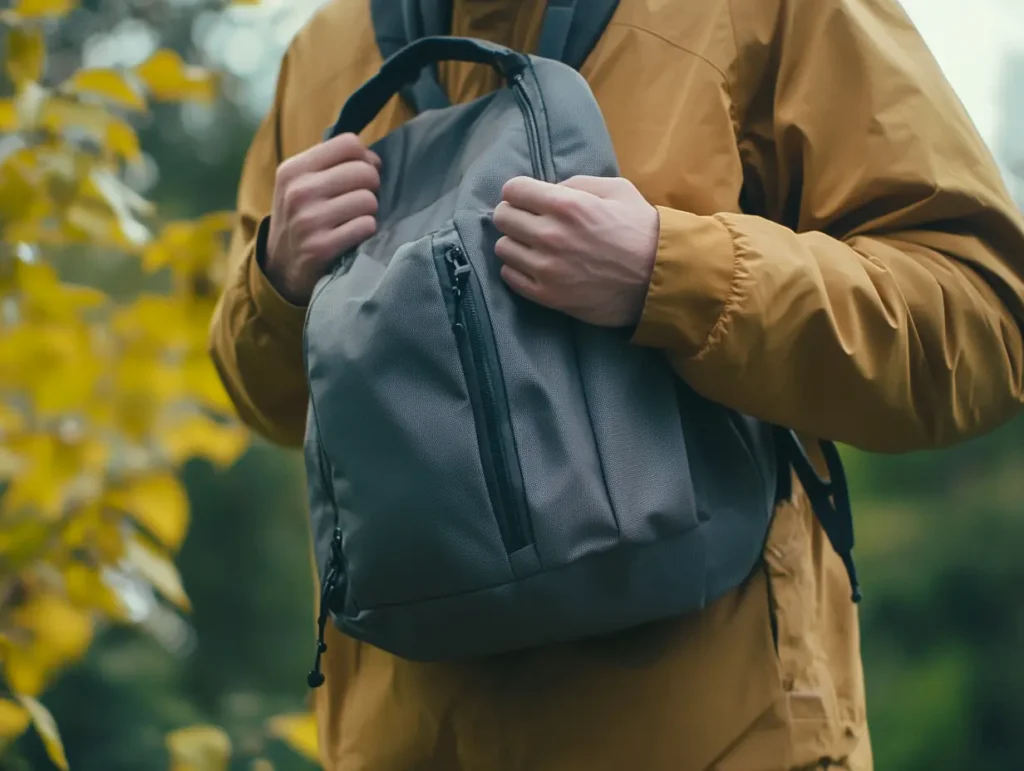
For a moment he didn’t move at all—just stared, as if the world had stopped turning. Then his voice cracked. “That’s them… my parents.” He clutched the photo tightly, shoulders shaking. “I haven’t seen this in… God, in half a lifetime.”
Ethan opened the bag further, showing the tarnished key and scraps of fabric. The man pressed a hand to the doorframe, knees threatening to give way. “I carried that bag everywhere,” he murmured, voice shaking. “It was all I had left.
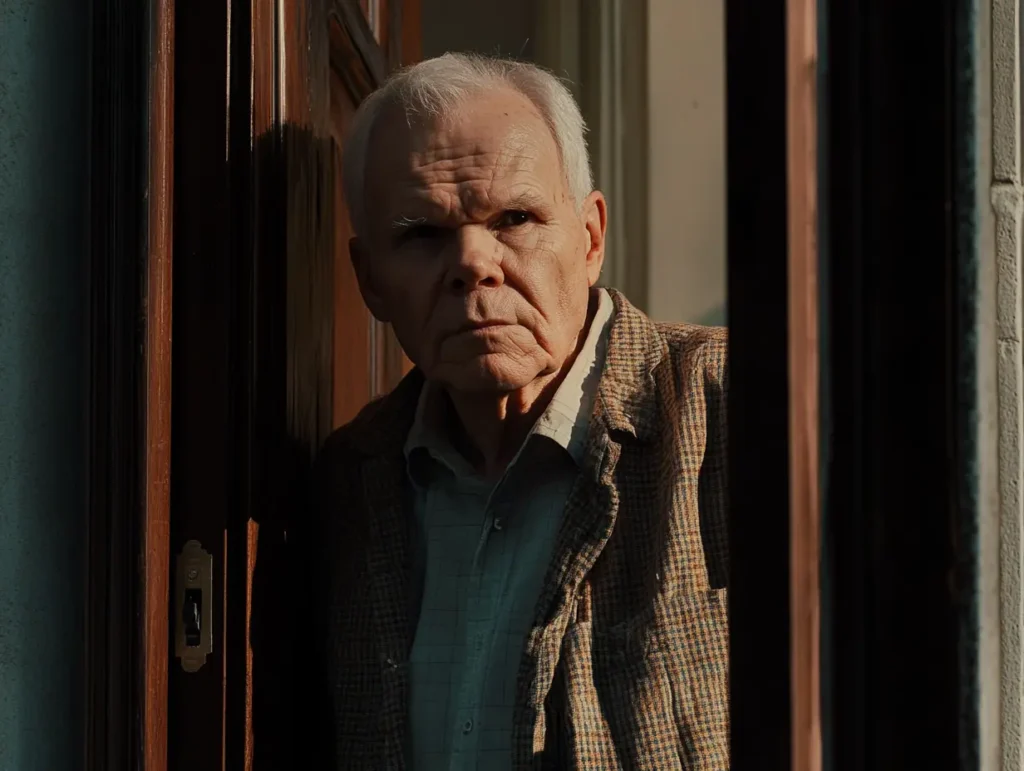
Then one night… it was stolen. Robbers took it, and I thought I’d lost it forever.” His words faltered, but his grip on the photograph of his parents only tightened. “And now you’ve brought it back to me.”
He lowered himself into a chair by the doorway, staring at the picture as if he were seeing ghosts given flesh. “You don’t know what this means,” he whispered. “These scraps… this key… this photograph. They are more than objects.
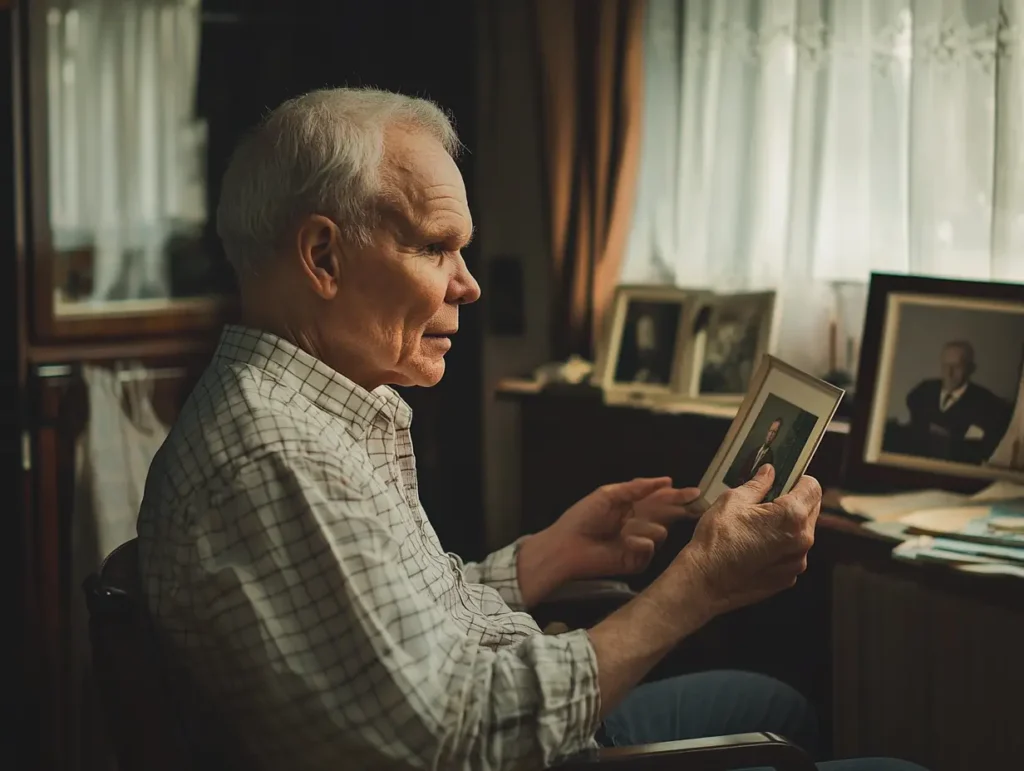
They are my family. My memories. My past. I thought I would never touch them again.” His lips trembled into a smile, lined with both sorrow and gratitude. “You’ve given me back a piece of myself.”
Ethan lingered silently, throat tight. He had never considered how much weight a small, forgotten bag could carry. But here, in this weathered home at the edge of town, he saw the truth: sometimes it wasn’t survival that mattered most, but remembrance.
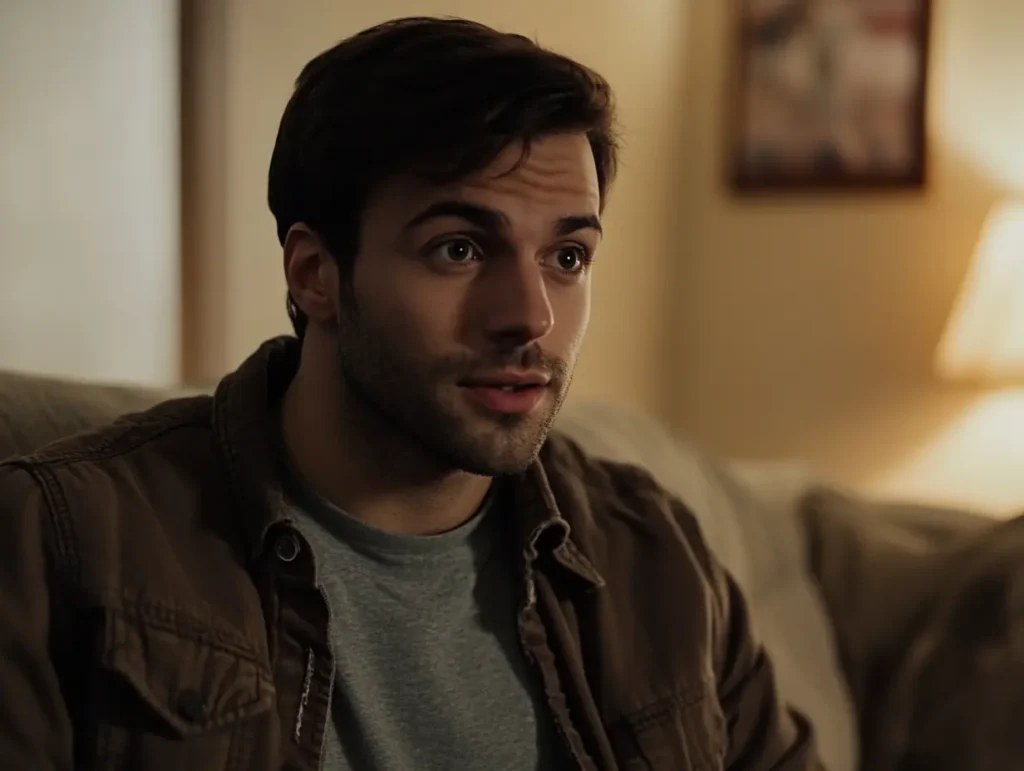
In the days that followed, Ethan returned often. The old man welcomed him warmly, always with the photo placed nearby as though it were an honored guest. They shared tea in chipped cups, the man recounting fragments of a life interrupted by loss, and Ethan listening, learning, carrying those stories as if they belonged to him too.
Word of what Ethan had done spread quietly through the town. Neighbors stopped him in the street, offering nods of respect or a kind word. At first, the attention unsettled him—he had never sought it—but slowly, it rooted him. He was no longer just a newcomer with a rented room above a shop. He was part of the place now, tied to its history, woven into its memory.
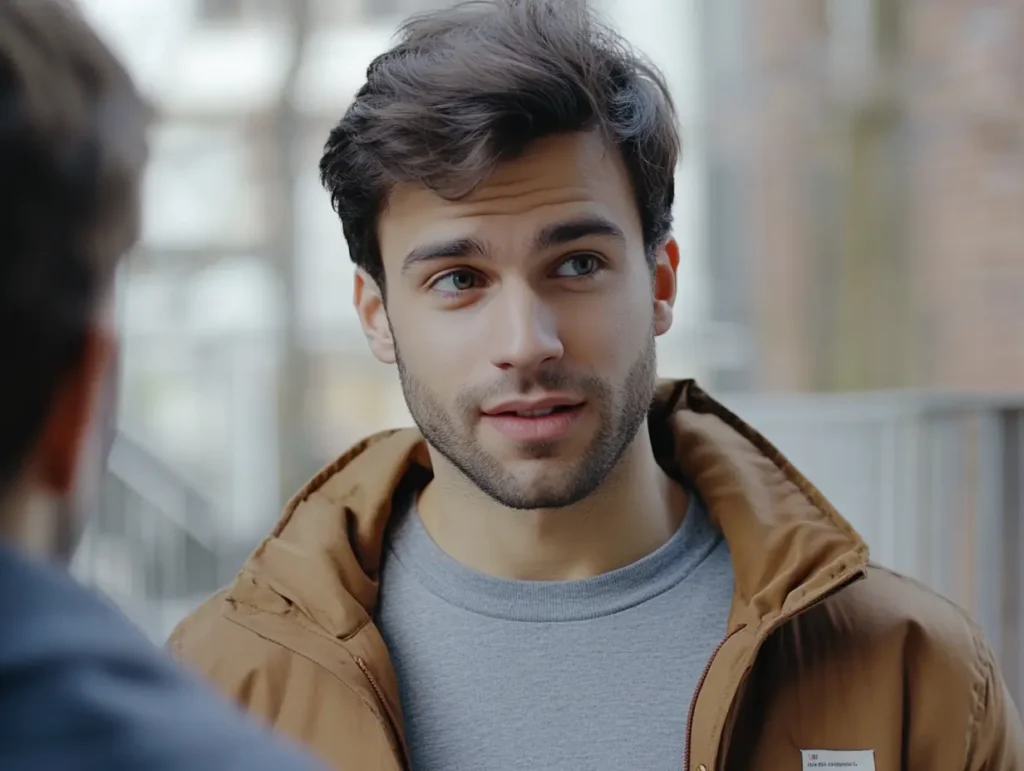
One evening, as Ethan left the old man’s home with the sunset painting the hills gold, he paused at the gate. Inside, the man sat by the window, the photograph propped carefully beside him, the brass key resting in his hand.
He held it not as an object, but as a tether—proof that something once lost could return. Ethan breathed in the cool air and smiled faintly. He no longer felt like an outsider drifting through unfamiliar streets.
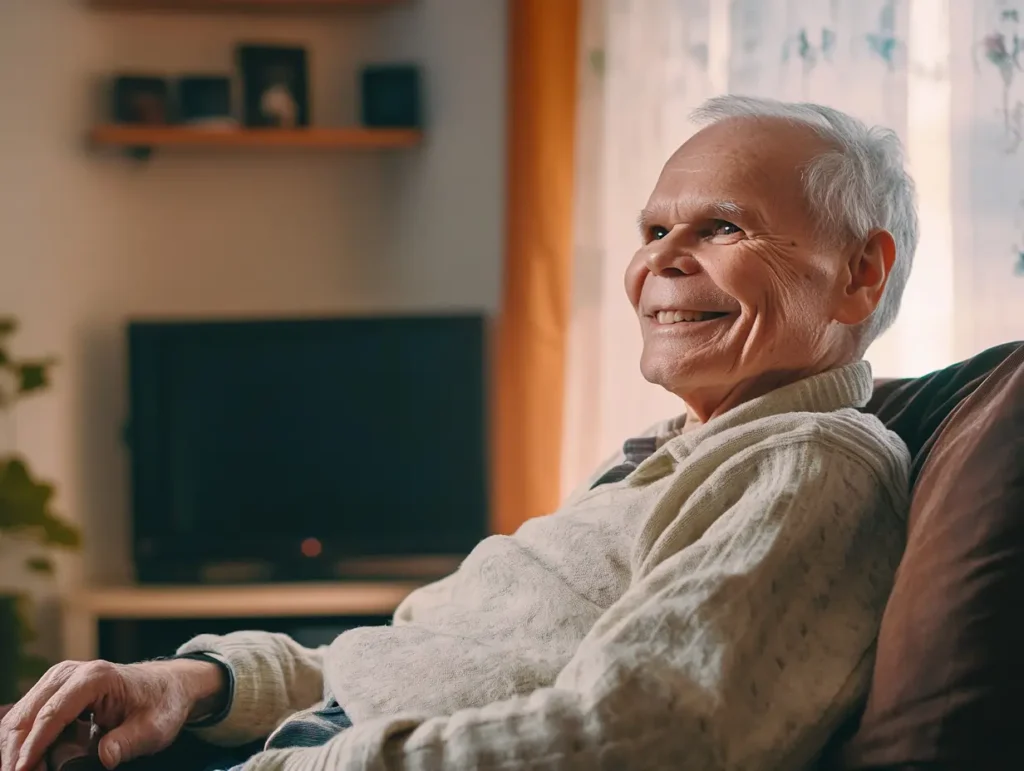
The town had opened itself to him, piece by piece, until its history had become his own. What began with a dog’s frantic digging had ended with memories restored—and with Ethan discovering a place where he finally belonged.

